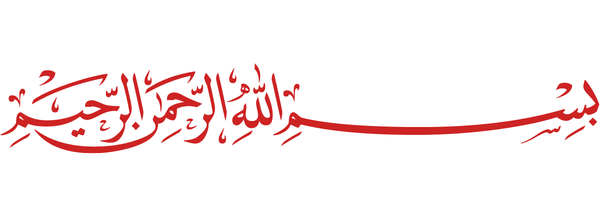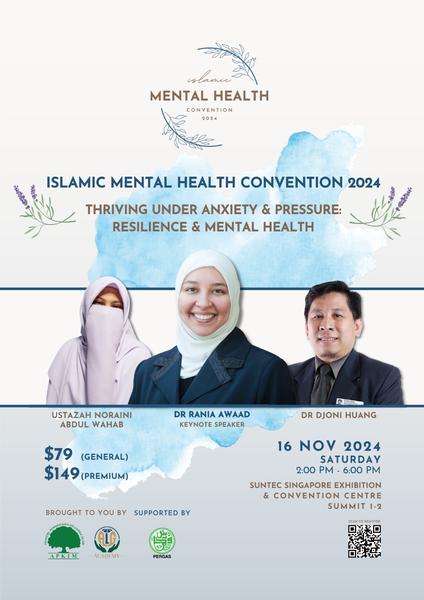"The believers are like one body; if one part is in pain, the whole body feels it." – Prophet Muhammad (PBUH)
In our community, mental health struggles are often hidden away, buried under layers of fear, shame, and stigma. Behind resilient smiles, many endure in
silence, fearful that seeking help may be seen as weakness, a sign of flawed character, or simply misunderstood by those around them. These are our youth, our friends, our family members—the very people we care about, yet their battles often go unrecognized.
It takes alot for for someone to say, “I am struggling.” In that vulnerable moment, how we
choose to respond can mean everything. Our compassion, understanding, and willingness to listen can be the lifeline they need, but this requires a genuine commitment from all of us to break down stigma and learn how to truly be there for those in need. For those suffering, the weight of judgment can be as heavy as the mental health challenges they carry.
What if, instead of silence, our community could be a source of healing and acceptance?
What if, through compassion and understanding, we could transform their struggles into shared resilience?
It’s within our power to create a community where mental health is met with empathy rather than silence, where no one has to endure their pain alone.
𝐓𝐡𝐞 𝐏𝐨𝐰𝐞𝐫 𝐨𝐟 𝐂𝐨𝐦𝐩𝐚𝐬𝐬𝐢𝐨𝐧 𝐢𝐧 𝐀𝐜𝐭𝐢𝐨𝐧
Compassion is more than simply feeling for someone; it’s actively choosing to walk alongside them. Yet, for many, showing compassion to those with mental health challenges feels daunting. We may not know how to help, worry about overstepping, or feel unsure about what to say. But supporting someone in need doesn’t require perfection—it requires presence, patience, and a readiness to learn. Our Islamic tradition teaches us about the power of community. Imam Al-Ghazali once
said, “None of us is independent of others.” When one member of our community struggles, we all feel its ripple effects. Compassion isn’t just a feeling; it’s a responsibility to lift each other, to bring light where there is darkness, and to show up for those silently enduring.
This is why the 𝐈𝐬𝐥𝐚𝐦𝐢𝐜 𝐌𝐞𝐧𝐭𝐚𝐥 𝐇𝐞𝐚𝐥𝐭𝐡
𝐂𝐨𝐧𝐯𝐞𝐧𝐭𝐢𝐨𝐧 𝟐𝟎𝟐𝟒 is so important. Together, we can learn how to create a community where mental health challenges are met with compassion, not stigma. Our Director of APKIM, Siti Adilah Abu Bakar, and Counsellor Noraini Abdul Wahab recently shared invaluable insights on this very topic in one of our APKIM Podcast. They emphasized:
🌸
𝐑𝐞𝐜𝐨𝐠𝐧𝐢𝐳𝐢𝐧𝐠 𝐭𝐡𝐞 𝐒𝐢𝐠𝐧𝐬 𝐨𝐟 𝐒𝐭𝐫𝐮𝐠𝐠𝐥𝐞: Many who need help won’t openly say it. By learning to recognize the signs, we can be proactive in offering support to those who need it most.
🌸 𝐂𝐨𝐦𝐩𝐚𝐬𝐬𝐢𝐨𝐧𝐚𝐭𝐞, 𝐏𝐫𝐚𝐜𝐭𝐢𝐜𝐚𝐥 𝐒𝐮𝐩𝐩𝐨𝐫𝐭: We need to learn how to support others with empathy, without overwhelming
them. This includes knowing how to listen, provide comfort, and respect their personal boundaries.
🌸 𝐂𝐫𝐞𝐚𝐭𝐢𝐧𝐠 𝐒𝐚𝐟𝐞 𝐒𝐩𝐚𝐜𝐞𝐬 𝐟𝐨𝐫 𝐇𝐨𝐧𝐞𝐬𝐭 𝐂𝐨𝐧𝐯𝐞𝐫𝐬𝐚𝐭𝐢𝐨𝐧𝐬: Imagine a world where someone can say, “I need help,” without fear of being judged. This is possible if we commit to fostering safe, non-judgmental
spaces.
𝐀 𝐂𝐚𝐥𝐥 𝐭𝐨 𝐎𝐮𝐫 𝐂𝐨𝐦𝐦𝐮𝐧𝐢𝐭𝐲
We’re reaching out to parents, educators, community leaders, religious teachers, mental health professionals, and every person who believes in the
strength of our community. Each of us plays a role in creating a compassionate, supportive environment for those facing mental health struggles. Whether it’s a young person unsure of how to handle their emotions, a friend overwhelmed by life’s pressures, or a family member quietly enduring inner battles—everyone deserves to feel that they don’t have to face this alone.
As a community, we can remove the stigma, learn the tools, and create a community where mental health challenges are met with compassion and understanding.
Please join us at the 𝐈𝐬𝐥𝐚𝐦𝐢𝐜 𝐌𝐞𝐧𝐭𝐚𝐥 𝐇𝐞𝐚𝐥𝐭𝐡 𝐂𝐨𝐧𝐯𝐞𝐧𝐭𝐢𝐨𝐧 𝟐𝟎𝟐𝟒 . This is more than an event—it’s a movement toward a future where our
community is a source of strength, support, and healing. You’ll leave equipped with practical tools, renewed empathy, and the knowledge to make a real difference.
Event details:


